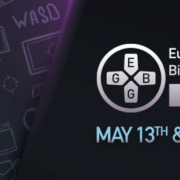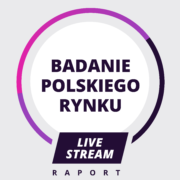Loot boxes in video games: the Polish approach in the European context
To start off the blog with an exciting topic, I thought I would summarise the current approach of Polish authorities regarding loot boxes in video games. However, before I do, I will start with a brief overview of the issue from the European perspective. To be sure, those shiny crates with random game-enhancing goodies for players have a turbulent history with national regulators, particularly violent in Europe.
Ever since the great Star Wars: Battlefront II controversy of 2017, more and more regulators and/or governments of European states have been taking stances on the topic, in particular in the context of their national gambling and children protection regulations.
Regardless of the details of the applied loot box mechanics, it has been argued that this element of chance, designed to keep players invested (and sometimes – also investing) in a game, forms a part of the compulsion loop, which may lead to gaming addiction (currently officially recognised by the World Health Organisation as a mental health disorder) and bears significant resemblance to gambling addiction.
Taking into account the above, and also the fact that many games involving loot box monetisation schemes are addressed to and/or commonly played by children, several European states decided to take action against loot boxes.
The particular approach of various states varies when it comes to qualifying loot box mechanics as gambling, since gambling regulations are mainly a domain of national, and not EU-level legislation. It is worth noting that the Dutch Gaming Authority and the Belgian Gaming Commission took the most strict approach so far, finding some loot box systems to be in violation of their gambling laws. This concerned games which both sell loot boxes and permit the transfer of yielded items (the Netherlands) or where there is no means to directly purchase in-game currency to obtain a specific item (Belgium). This resulted in several major publishers disabling or modifying loot box availability for Dutch and/or Belgian players.
Other countries, including France, Germany, the UK and Sweden have taken various steps to address this issue via a variety of competent authorities and commissions, all of which may be summarised in a warning: “We are watching you, loot boxes, and watching closely”. The lack of monetary value of the looted items and no participation of the publisher in any potential trade activities (“skin gambling”) are often raised as arguments against treating loot box mechanics as gambling. On the other hand, significant similarities to gambling and the involvement of underage players in games including loot box mechanics are factors that cannot be easily dismissed.
Now what is the stand of Polish authorities as regards loot boxes and gambling? For now, video game publishers do not have to worry about any fines or prosecution under Polish law. In a statement issued in February 2019, the Polish Ministry of Finance stated that loot boxes do not fall into any category of gambling games recognised by the Gambling Act of 2009, and consequently cannot be treated as gambling under Polish law. The Ministry stated that the mere fact of existence of an element of chance in a particular activity does not prejudge of its gambling character.
The way that the Polish law is formulated in that regard prevents the Polish regulator (the Ministry of Finance) to freely decide whether a particular activity should be considered gambling. The Ministry is limited by law to performing a test whether a particular activity fulfils the characteristics of one of the four types of gambling games recognised by the Gambling Act of 2009. Those are: games of chance, betting, card games and slot machine games, each of them described in detail in the act.
What emerges from the above statement of the Ministry of Finance, is that publishers offering loot boxes are safe in Poland, at least as long as the Gambling Act of 2009 is not amended in a way which would allow for treating loot boxes as gambling.
Should we expect any legislative change in that regard? In my opinion, that possibility should not be easily dismissed. This is, among other reasons, because of the strong call for harmonisation of national legislations, initiated by the Dutch and Belgian regulators. In 2018, during the annual meeting of the Gaming Regulators European Forum, representatives of gaming regulators from over 15 European states, including the UK, France, Ireland, Spain and Poland, as well as the State of Washington, USA, announced that they will work together to thoroughly analyse the characteristics of video games and social gaming in the light of national laws and regulations, as a result of controversies relating to skin betting, loot boxes, social casino gambling and the use of gambling themed content within games available to children. This common action by gambling authorities should “raise parental and consumer awareness regarding the transition between gaming for leisure and entertainment and the offering of gambling possibilities”.
I can see the above items as potentially compelling for policy makers. Besides, granting gambling licences for game publishers could also result in some additional, always welcome, budget revenue. What remains is to keep a close look on the works of the European and Polish policy makers and regulators, which we – at LegalPlay – are committed to do.







